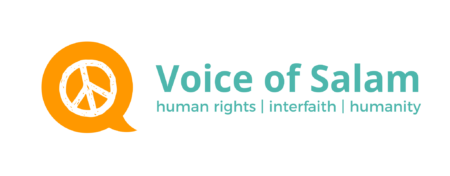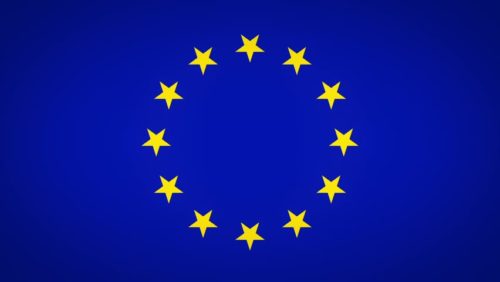Voice of Salam
Voice of Salam (Voice of Peace) was founded in 2015 to raise awareness of a range of global issues and advocate for the promotion, protection and understanding of human rights, interfaith, social and cultural issues.
Vision
Voice of Salam’s vision is of a world where every human being is treated with equal dignity with full respect to their human rights, regardless of their gender-identity, sexuality, ethnic background, nationality or religious affiliation.
Mission
Voice of Salam’s mission is to break down barriers between people from diverse faith and cultural communities and promote the protection of human rights worldwide.
Aims
To raise awareness of, campaign and advocate for a wide range of socio-cultural, human rights, intercultural and interfaith issues.
Values
Voice of Salam’s key values are: peace, equality, inclusivity and transparency.
Please note:
Voice of Salam stands against all forms of hatred, including antisemitism, anti-Muslim hatred/Islamophobia, racism, xenophobia, homophobia, transphobia, misogyny and discrimination against people living with disabilities.
Voice of Salam refers to the IHRA definition of antisemitism.
Voice of Salam is a non-partisan, non-political organisation made of up members of varied faith and cultural backgrounds. Voice of Salam does not hold an official position on political issues and global conflicts including the Israeli-Palestinian conflict. Voice of Salam would like to see a future free from violence in which Israelis and Palestinians can both live in freedom, peace and security.
Key areas of work:
- Jewish-Muslim relations
- Gender inequality
- Refugee rights
- LGBTQI+ rights
Work specifically on Jewish-Muslim relations:
At Voice of Salam, we’re passionate about showing the world that Muslims and Jews are friends and that the Israeli-Palestinian conflict is much more complicated than often portrayed. Within the conflict itself, there is also hope!
We’re actively challenging antisemitism and anti-Muslim hate in all their forms, showing examples of and encouraging Jewish-Muslim engagement and bringing more nuanced perspectives of the Israeli-Palestinian conflict to the public sphere.
As part of our work in Jewish-Muslim relations, our website also includes specialised language sections of the website in Arabic and Hebrew [forthcoming] to enable us to reach as many people as possible.



 NOA is co-funded by the Rights, Equality and Citizenship Programme (2014-2020) of the European Union
NOA is co-funded by the Rights, Equality and Citizenship Programme (2014-2020) of the European Union